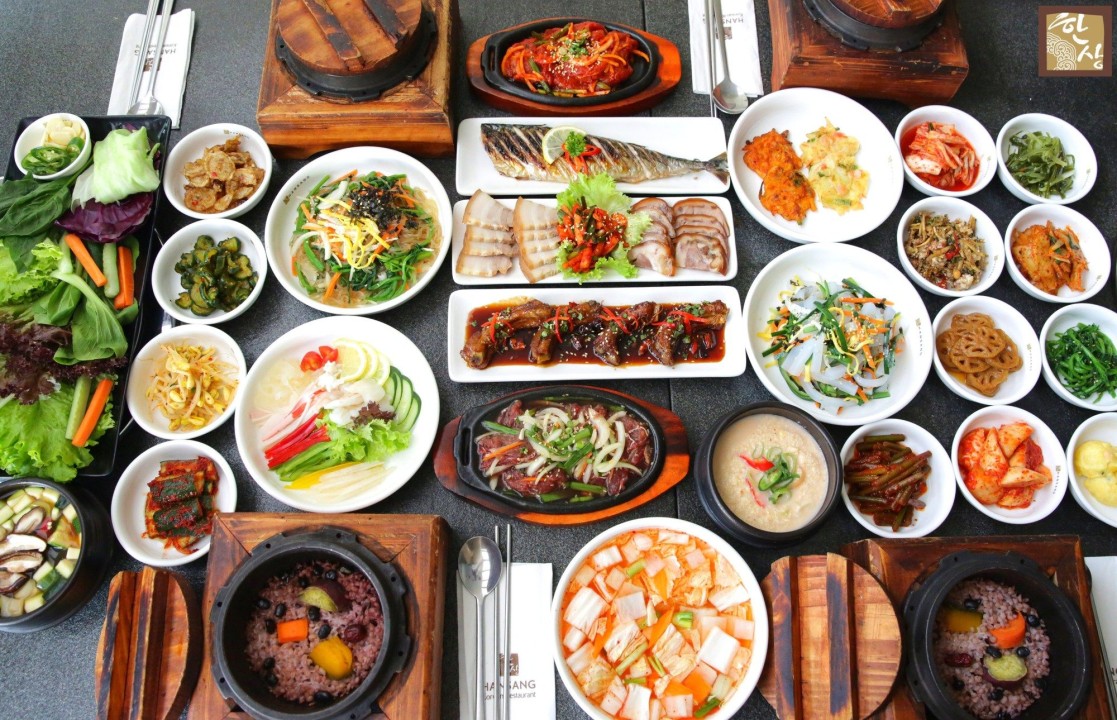
Healthy Korean Food
Delving into the World of Healthy Korean Cuisine: Nutritious Dishes for a Balanced Lifestyle
In the colorful tapestry of global gastronomy, healthy Korean food stands out not only for its rich flavors and textures but also for its inherent emphasis on health and balance. With a culinary tradition deeply rooted in the principles of Jeong-sik (well-balanced meals) and the Five Elements Theory (Oin-gye), Korean food offers an array of dishes that are as delicious as they are nutritious. This blog post aims to shine a light on these healthy aspects of Korean fare, exploring popular dishes that can easily be incorporated into your daily diet.
The Philosophy Behind Healthy Korean Cuisine
Korean meals are meticulously crafted with a holistic approach to nutrition. The concept of “Jeong-sik” emphasizes the importance of consuming a variety of foods in each meal – from carbohydrates like rice to proteins and an array of vibrant, fresh vegetables. Moreover, the Five Elements Theory guides Koreans in selecting ingredients that harmonize within the body, promoting overall well-being. Traditional Korean meals often consist of banchan (assorted side dishes), steamed rice, soup, and sometimes a main dish, all contributing to a diverse and balanced plate.
Powerful Ingredients in Korean Pantry
Central to the health benefits found in Korean food is the use of fermented and superfood ingredients. Kimchi, Korea’s national dish, is packed with probiotics that aid digestion and boost the immune system. Gochujang, a spicy chili paste, is another staple, known for its antioxidants and anti-inflammatory properties. Fermented soybean products like doenjang andmganjang play a pivotal role in maintaining gut health due to their live cultures. Additionally, Korean cuisine incorporates numerous superfoods, such as ginseng for energy and vitality, perilla leaves rich in vitamins and minerals, and more.
Traditional Korean Cuisine: Nutritious Dishes to Explore
Korean food offers many flavorful, healthy options beyond just barbecue and kimchi. By focusing on vegetables, lean proteins, fermented foods, and heart-healthy ingredients, traditional Korean meals provide well-rounded nutrition. Discover some of the pillars of nutritious Korean cuisine.
Bibimbap
Bibimbap is a signature Korean dish of mixed vegetables, egg, meat, and gochujang chili sauce served over warm white rice. The bowl is tossed together before eating, allowing you to customize spice and mix up flavors. The range of fresh vegetables and lean proteins makes bibimbap a nutritious one-dish meal.
Japchae
Japchae are chilled glass noodles made from sweet potato starch that provides fiber. It’s tossed with a protein like beef or tofu along with assorted sliced vegetables. The light yet filling ingredients make refreshing japchae perfect for warm weather and its unique sweet potato glass noodles pack a nutritious gluten-free punch.
Bossam
Bossam features lean boiled pork belly paired with spicy kimchi, lettuce, garlic, onion, and ssamjang sauce for wrapping. Pork offers protein while kimchi boosts gut health with probiotics. Wrapping the components in fresh lettuce balances the rich pork with crisp greenery.
Seaweed Soup
Miyeok guk or seaweed soup often contains beef or mussels along with the seaweed, which provides a hefty dose of iodine, an essential nutrient. The broth is mineral-rich and using lean beef or mussels incorporates a serving of protein tied together by the savory seaweed.
Tofu Stew
Dubu-jorim simmers soft, silky cubed tofu in a spicy, complex broth along with veggies like zucchini, onion, and mushrooms. Tofu is a plant-based protein source while the variety of vegetables offer antioxidants and fiber for a wholesome balanced meal.
Doenjang Jjigae
A comforting stew made from doenjang, it is filled with an assortment of vegetables and tofu, offering a hearty dose of plant-based protein and fiber. Its warm, savory broth encourages slow savoring and supports digestive health.
4. Haemul Pajeon
For those looking to incorporate heart-healthy omega-3 fatty acids, Haemul Pajeon, a seafood and green onion pancake, is a flavorful choice that’s both satisfying and good for you.
Korean cuisine seamlessly combines complementary nutrients and textures using chili pepper for spice. Explore the foundations of the cuisine beyond BBQ for insight into achieving a healthy, balanced diet through traditional dishes brimming with flavor.
Snacks and Beverages for Health
Healthy snacking doesn’t have to be boring when you introduce Korean options like kkakdugi—crisp, tangy cubes of radish kimchi that double as a probiotic-rich snack. When it comes to beverages, try yuja tea—a refreshing drink made from yuzu citron .Which is brimming with vitamin C and antioxidants, ideal for boosting immunity. Finish off your meal with sikhye, a traditional sweet drink made from malt barley that aids digestion and satisfies your sweet tooth without overloading on calories.
Adopting Korean Eating Habits for Optimal Health
To truly embrace the health benefits of Korean cuisine, consider adopting some key Korean eating habits. Begin by incorporating small portions of a variety of foods through banchan, allowing you to sample multiple tastes and nutrients at once. Embrace the social dining culture where meals are shared, fostering mindful eating and reducing the likelihood of overconsumption. Lastly, follow the Korean practice of seasonal eating, which ensures a rotation of fresh produce that maximizes nutritional value.
Conclusion
Diving into the realm of healthy Korean food has underscored its potential to significantly enhance our diets . By experimenting with Korean ingredients and recipes, we open ourselves up to a world of flavor and nutrition. As we continue to explore international cuisines, remember that Korean food offers a wealth of choices that nourish both the body and soul.
Additional Resources
For those eager to delve deeper into the art of healthy Korean cooking. There are several excellent cookbooks available that provide authentic recipes and insights. Online platforms abound with resources for purchasing Korean ingredients and discovering new recipe ideas. Furthermore, scientific studies increasingly validate the health benefits of Korean staples, providing compelling reasons to integrate them into your everyday meals. Take the first step today towards healthier eating by embracing the wisdom and taste of Korean cuisine.





